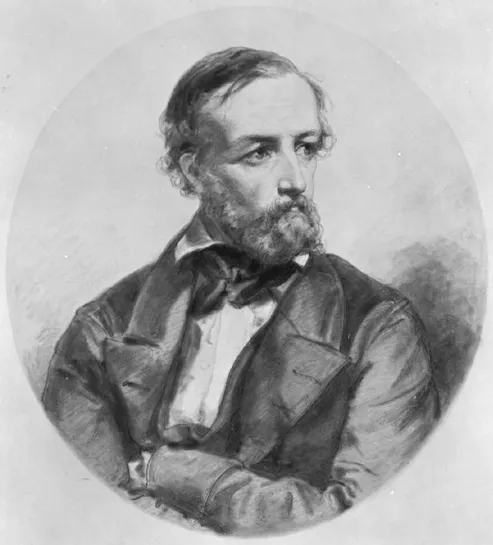
Name: Umaru Musa Yar'Adua
Nationality: Nigerian
Profession: Academic and Politician
Position: 13th President of Nigeria
Birth Year: 1951
Presidency Period: 2007 - 2010
Umaru Musa Yar'Adua: A Complex Legacy
It was a cool night in Katsina, Nigeria, when the world welcomed Umaru Musa Yar'Adua in 1951. Born into a respected family with deep roots in academia and politics, he seemed destined for greatness. His father, Alhaji Musa Yar’Adua, was a notable educator and had served as the District Head of his locality. Perhaps it was this backdrop that instilled in him an insatiable thirst for knowledge and public service.
However, like many tales of greatness, his journey would be marked by both promise and profound challenges. The young Umaru dedicated himself to education early on; he pursued a degree in Chemistry at Ahmadu Bello University. It wasn't long before he found himself entrenched in the educational landscape of Nigeria not just as a student but also as an influential lecturer at the same institution after earning his master's degree.
His foray into politics came later, but it was far from accidental. In 1999 just after Nigeria’s return to civilian rule he entered the political arena by running for Governor of Katsina State. Ironically, while many politicians emerged with fiery rhetoric and grand promises of change during this tumultuous time in Nigerian history, Yar’Adua campaigned on simplicity and integrity; values that resonated with many voters who had grown weary of political corruption.
With charisma overshadowed only by his humility, Yar'Adua clinched victory to become Governor. His leadership style contrasted sharply with those around him; he believed governance should be about listening rather than dictating a notion not easily embraced by many political figures then or now.
As governor from 1999 to 2007, he implemented reforms aimed at improving education and healthcare perhaps these initiatives were reflections of his own academic roots or could it have been influenced by witnessing the struggles within his community? He initiated programs designed to tackle poverty head-on a commendable yet daunting task amidst widespread corruption.
Yet despite these efforts and perhaps ironically the specter of mismanagement loomed large over Nigerian politics during this era. During his tenure as governor though successful in some reforms Yar’Adua's administration faced criticism regarding human rights abuses and allegations that shadowed local governance through deep-rooted systemic issues.
The pinnacle of his career arrived when he became Nigeria’s 13th President after winning elections held on April 21st, 2007. However in an unfortunate twist it soon became evident that health problems would plague his presidency right from its onset; just months after taking office diagnosis revealed he suffered from kidney disease requiring regular dialysis treatment!
This health condition transformed every aspect not only of President Yar’Adua’s leadership but also shaped national policy decisions under increasing pressure from both party loyalists seeking more power while Nigerians yearned for stability amid uncertainty! Ironically enough: while one might assume being at the helm should offer clarity the ambiguity surrounding his health created confusion over succession plans leading to wider unrest among citizens grappling with lackluster governance!
The National Assembly eventually passed “The Doctrine Of Necessity” allowing then Vice-President Goodluck Jonathan to assume presidential powers during Yar'Adua's absence a decision met with mixed reactions across various segments within society! Who knows what truly lurked behind closed doors amidst this power struggle? Perhaps tension simmered beneath their seemingly calm exterior akin to storm clouds gathering overhead before unleashing torrents!
Doubtless affected profoundly were ordinary Nigerians whose lives hung precariously between two leaders left unchallenged due largely because questions persisted surrounding both legitimacy & ability thereof… Was it merely circumstantial or did fate intervene deliberately toward shaping contemporary Nigerian history?
A Man Remembered
The final act came too soon; on May 5th, 2010 the nation awoke under darkened skies announcing President Umaru Musa Yar’Adua had succumbed after protracted illness! There were mixed sentiments expressed across social media platforms reflecting sorrow tinged skepticism: some lauded him posthumously while others scrutinized aspects remaining unresolved throughout presidency itself including lack accountability shown within governmental systems exacerbating fears concerning corruption still rampant today!
A Reflection on Legacy
Even today in hindsight we grapple wrestle upon understanding impact made during such turbulent times leading up toward eventual demise thereof! Historians recount how internal rifts manifested themselves even amid calls nationwide urging transparency highlighting hope glimmering underneath chaos present then!... Could we speculate whether mistakes linger stubbornly ever-repeating themselves whilst attempts rectifying systemic issues often thwarted?...
An Ongoing Influence
A decade later since passing away I can't help but reflect upon ongoing political discussions echoing themes highlighted by late president such honesty integrity good governance… For instance debates arise around policy frameworks fostering inclusivity versus exclusion revealing cracks visible over years amplifying disillusionment amongst populace! Wouldn’t aligning policies creating environments nurturing educated citizens lead toward healthier democracies perhaps establishing legacies previously dreamed?
Your Thoughts Matter!
"In street interviews conducted recently a voter expressed disappointment claiming: ‘We still await accountability where government fails serve us best’.”




